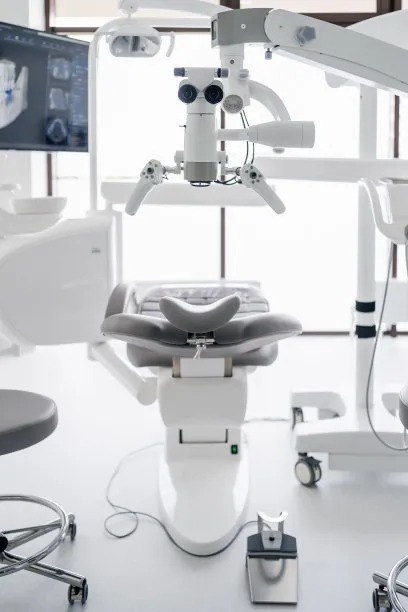Summary: Extracting a tooth may seem drastic, yet it can be crucial for maintaining dental health and ensuring long-term wellbeing. This article explores the importance of tooth extraction through four key aspects: alleviating pain and discomfort, preventing future dental issues, enhancing oral hygiene, and facilitating orthodontic treatments. Understanding these factors can help patients recognize when extraction is the best option for their dental health, ultimately leading to a more sustainable smile and improved overall health.
1. Alleviating Pain and Discomfort

One of the most immediate benefits of tooth extraction is the relief it provides from chronic pain and discomfort. A decayed or damaged tooth can result in severe, persistent pain that disrupts daily activities. Extracting the problematic tooth eliminates this source of pain, allowing individuals to live more comfortably.
Additionally, teeth that are infected can cause not only local pain but also systemic issues. Infections can spread to adjacent teeth or even to other areas of the body, such as the jaw or sinuses. Tooth extraction serves as a remedy, removing both the infected tooth and the pain that accompanies it.
Moreover, for people suffering from temporomandibular joint (TMJ) disorders, problematic teeth can exacerbate symptoms. By extracting troublesome teeth, patients may experience significant relief, leading to better function and improved quality of life.
2. Preventing Future Dental Issues
Tooth extraction is often a proactive measure to prevent future dental complications. When a tooth is severely decayed, leaving it untreated can lead to more extensive problems, including abscesses, gum disease, or overcrowding. By choosing to extract a tooth, one can prevent these issues from arising.
Furthermore, teeth that are cracked or broken can serve as entry points for bacteria, leading to infections that threaten oral and general health. Removing such teeth safeguards not only the surrounding teeth but also the overall integrity of the mouth.
In some instances, wisdom teeth are prone to impaction, leading to pain and potential alignment issues. Early extraction of wisdom teeth can prevent future orthodontic complications and ensure the mouth remains aligned and functional.
3. Enhancing Oral Hygiene
Poor oral hygiene can often lead to the need for tooth extraction. Teeth that are decayed or poorly positioned can make it challenging to maintain optimal oral hygiene, leading to a cycle of issues. Removing such teeth often makes it easier for individuals to uphold better oral care practices, achieving improved hygiene over time.
Additionally, overcrowding of teeth can complicate brushing and flossing, resulting in plaque buildup and periodontal diseases. Extracting excess or problematic teeth can provide the space needed for proper cleaning routines, which play an essential role in preventing cavities and other dental issues.
Moreover, individuals who have undergone tooth extraction might find renewed motivation to stay on top of their oral hygiene. Faced with the consequences of neglect, many become more diligent with their dental care, leading to a healthier mouth overall.
4. Facilitating Orthodontic Treatments
Tooth extraction is frequently considered in orthodontic care to create room for the proper alignment of teeth. In cases where there is severe overcrowding, removing one or more teeth allows orthodontists to effectively align remaining teeth, leading to a better bite and improved aesthetics.
Furthermore, for patients with misaligned jaws or severe malocclusions, tooth extraction can be a fundamental step in successful orthodontic treatment. By addressing underlying issues, orthodontists can work towards achieving long-term dental health and improved function.
Patients undergoing braces or aligner treatments may find that extraction places them on a more efficient path to their desired results. This proactive measure prevents future complications and enhances the effectiveness of orthodontic solutions.
Summary:
The article elaborates on the crucial role of tooth extraction in dental health and long-term wellbeing, emphasizing pain relief and prevention of future issues, oral hygiene enhancement, and facilitation of orthodontic treatments. Recognizing the significance of extracting problematic teeth can inform better decisions regarding oral health, leading to a healthier, brighter smile in the long run.
This article is compiled by Vickong Dental and the content is for reference only.
Vickong Dental
Vickong Dental is a large medical group established in Hong Kong in 2008 by professors from well-known medical universities in Guangdong and Hong Kong, as well as medical doctors from key national '985' universities (including Master's supervisors and senior professors). The chain of branches brings together expert dentists with PhDs and Master's degrees from Hong Kong and Mainland China, committed to providing high-quality dental treatment.
"Vickong Dental Practices the University Motto of 'Healing and Serving Society,' with a Stable Operation for Sixteen Years. It Has Been honored with Hong Kong Enterprise Leaders's Choice,' and is a Global Trusted Implant Center for the Nobel Implant System. Recommended by Hong Kong Metro Broadcast and Guangdong Television, it Serves Customers from Over Thirty Countries and Regions, Gaining the Trust and Favor of Citizens from the Guangdong-Hong Kong-Macau Greater Bay Area and Surrounding Cities.

Thousands of customers' unanimous praise
The most recognized and highly recommended dental service by customers in the Guangdong-Hong Kong-Macau Greater Bay Area
We Ensure You Receive Detailed Care and Attention Here
Hong Kong standards, Shenzhen prices, Your Trusted English-speaking dentists

Vickong Dental Medical-Grade Instrument Disinfection Process
Vickong Dental Medical-Grade Instrument Disinfection Process

Vickong Dental Chain: A Warm and Comfortable Environment for Treatment






Appointment Hours

Q&A
Why choose Vickong Dental?
Vickong Dental practices the university motto 「Medicine to Benefit Society」, with each branch bringing together highly qualified dentists with doctoral and master’s degrees from Hong Kong and the Mainland, and has maintained seventeen years of steady operation。Recipient of 「2024 Hong Kong Enterprise Leaders Brand」, 「2025 Hong Kong Enterprise Leaders Brand」, a Nobel Biocare Global Trusted Implant Center, and a brand recommended by Metro Radio Hong Kong and Guangdong TV。
To date, we have served customers from more than thirty countries and regions,earning exceptionally high word-of-mouth recognition and trusted recommendations from residents across the Guangdong-Hong Kong-Macao Greater Bay Area and surrounding cities
We have eight major branches in Zhuhai、Shenzhen,and a consultation and service assurance center in Hong Kong,so you can book a free consultation at any time for any questions,which is very reassuring.
If I do not accept the quotation after the CT scan, will I be charged??
No! As long as the actual treatment has not started, you will not be charged any fees.
Will there be any additional charges during the treatment process?
No, there won’t be any additional charges. Before treatment begins, we will clearly explain the treatment plan and its corresponding fees. Only after the patient agrees and signs the consent form will we proceed with the dental service.
Can I pay in Hong Kong dollars?
Yes. Vickong Dental accepts payment in Hong Kong dollars. The amount will be converted based on the exchange rate of the day, and the applicable rate will be clearly communicated to you in advance.
Can I reschedule my appointment at any time?
Yes. Please contact us via **WeChat** or **WhatsApp** as early as possible, providing your original appointment time and details, along with your preferred new date and time slot for rescheduling.













